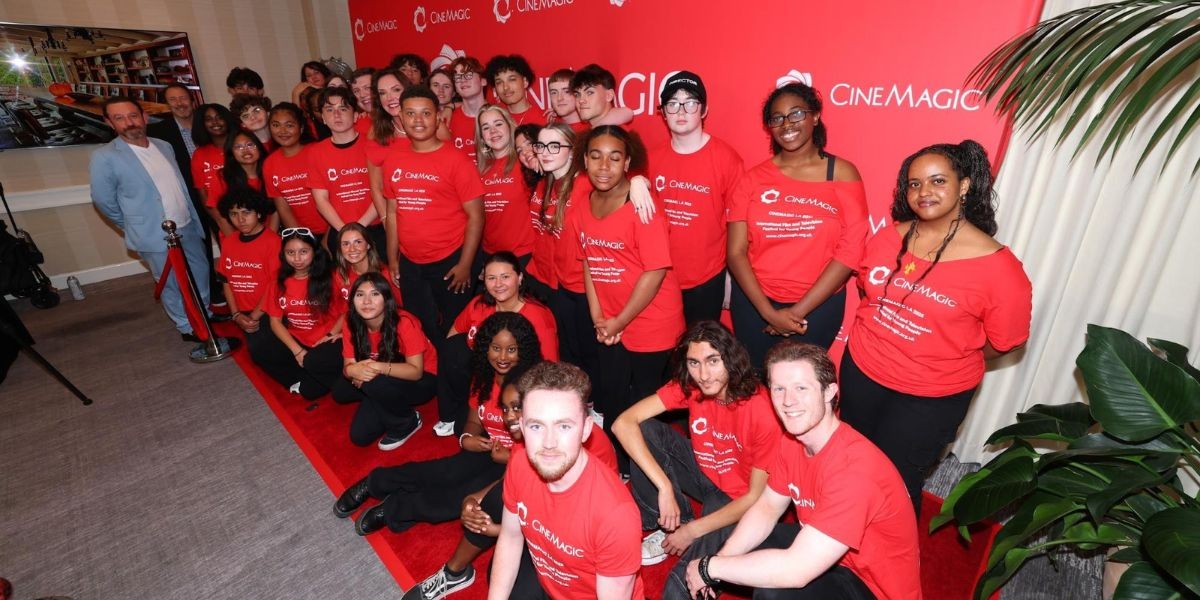At the intersection of youth empowerment and cinematic innovation, Cinemagic once again took center stage in Los Angeles, marking its 15th year with a vibrant showcase dedicated to emerging filmmakers. Held at the Fairmont Miramar Hotel & Bungalows, the 2025 event offered more than just red carpet glitz—it provided an evening filled with storytelling, mentorship, and a growing global community.
Each year, Cinemagic brings together rising creatives from Northern Ireland, Ireland, and the United States, giving them unique access to the heart of Hollywood’s creative engine. This year’s participants, following an intensive week of industry immersion, premiered their original short films to an audience of entertainment leaders, changemakers, and celebrated figures from across the arts.

This year’s distinguished guest list included Tara Reid (American Pie), Jaime King (White Chicks), Amanza Smith (Selling Sunset), Nathaniel Weller (Musician), Mohamed Hadid, Keni Silva, Mike Manning (Cloud 9), Dan Feuerriegel (Days of Our Lives), Klara Mucci (The Crooks), and Rafael Cabrera (Ruthless), among others. Their presence highlighted the industry’s growing support for Cinemagic’s mission: creating meaningful opportunities for young, diverse voices to enter the world of film and television.
Under the leadership of CEO Joan Burney Keatings MBE, Cinemagic has cultivated a reputation not only as an award-winning film and television charity but also as a respected partner in professional development. Its LA program engages participants in real-world training with experts from renowned studios like Warner Bros. Discovery, Universal, and Paramount. Through a combination of workshops, panel discussions, and hands-on production sessions, students gain more than just knowledge—they leave with access, experience, and a greater sense of confidence.

The evening served as the grand finale to this week-long journey. Attendees viewed original short films produced by the youth participants—bold, personal, and deeply informed by their unique cultural backgrounds. The screenings were a reflection of Cinemagic’s founding philosophy: that creativity has no limits when young people are trusted with the tools and platform to share their stories.
Adding a philanthropic touch to the evening was an exclusive charity auction, which helped raise much-needed funds for Cinemagic’s year-round programming. The auction featured a selection of rare spirits and curated experiences, including Purisma Tequilas, Le Bon Argent Rosé and Brut, and Good Money 5-Year Whisky. Other sought-after items included VIP Laugh Factory tickets, premium seating for the LA Dodgers, signed memorabilia such as a Die Hard movie poster, Warner Bros. collectibles, and a luxurious experience at the Sally Hershberger Salon.
Funds raised from the auction will support Cinemagic’s global initiatives, covering costs such as travel, equipment, and production expenses that can often pose challenges for talented youth. Every contribution helps not only in the creation of the film but also in the long-term development of the individuals behind the camera.
For those who participate in the program, Cinemagic often represents a pivotal turning point. With limited formal entry points into the entertainment industry, particularly for underrepresented young people, the organization offers a significant alternative. Alumni have gone on to work across various sectors of the industry, turning a single opportunity into lasting, creative careers.
Cinemagic’s ongoing presence in Los Angeles strengthens its international vision. The Showcase continues to be a vital aspect of the organization’s mission, where education, art, and advocacy come together. With each handshake between mentor and mentee, each story shared, and every auction bid placed, the event helps to move the industry closer to equity and representation.
As the curtains closed on this year’s celebration, Cinemagic left more than just accolades in its wake—it ignited new ambitions, forged meaningful connections, and reminded everyone in the room that the future of cinema is not only hopeful but increasingly inclusive.






